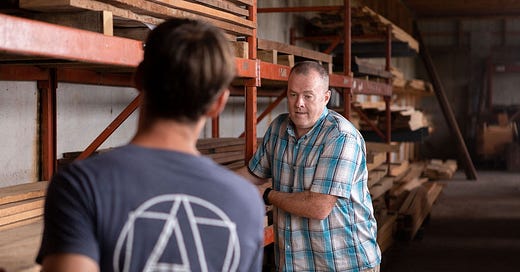In another election year, fear narrative about the economy is again spewed everywhere we turn. I’m not going to wax political only point out that narratives of fear are used to control us regardless of any truth they hold.
Having spent years in disaster relief and again the last few weeks watching my beloved Appalachia and family in Florida get pummeled by a hurricane I believe more than ever that when there is a dire situation the most valuable resource we can have is not food or prepper supplies, its not “survival knowledge” it is strong community relationships.
The quality and quantity of relationships with those in close proximity to us is our social safety net and that goes not just for natural disasters but also tight financial times.
When concerned about inflation and the economy the single most effective way I personally protect myself financially and contribute to the solution is to adjust my purchasing habits so my money stays as close to home as possible.
Money spent in my town pays my neighbor’s mortgage.
Money spent in my state pays for my roads and social services.
Money spent in my country supports American entrepreneurs and the families they employ.
Not only does this allow my money to serve my neighbor but it also behaviorally makes me less impacted by commodities that are artificially low due to low foreign labor rates and demands.
This is why I bank with a small-town credit union and not a corporate bank. This is why I shop at the locally owned hardware store and building supply and not the blue and orange stores.
Jimmy who owns the diner, grills my burger, hires my neighbors, and hires local construction workers when he builds his new house that’s financed through the local bank.
Right after Hurricane Helene we helped fill trailers of supplies headed out in response. I had a very tight schedule with little time to spare. Collecting donations through my Instagram I emailed Christian at the hardware store with a list of what we needed and how much money we had to spend. Not only did he discount the supplies but his team pulled the inventory and had it boxed at the door for me to pick-up. This is community.
So what are ways you can adjust your purchasing habits to protect yourself and build these relationships?
- Shop based on service rather than price. Your local store that serves you with a smile is more expensive due to the level of service they provide. Place value on that service rather than the $10 you think you’re saving by driving to a big chain store where you are just a number. or ordering online.
- Shop owner-operated businesses. Owner-operated businesses are the heart of American entrepreneurship. And their profits stay in the community.
- Shop for living wage. Shop businesses that have a reputation for taking care of their employees. Both in how they pay them and In a healthy environment they foster. If a business has high turnover and they treat their employees poorly, pass over them with your shopping dollars. If Doug has been an employee at the local store for 30yrs they are probably worth supporting.
- Shop relationally not transactionally. Much of consumerism culture is stripping away relationships to where everything is a pushing of buttons on a screen. Shop places where names, faces and smiles are impacted by your smile and they in turn brighten your day with theirs.
This is community.





I’ve been thinking about the importance of community a lot lately, selfishly from the point of view of a feeling of belonging. This is a wonderful reminder of even more elements that make community important.
Well said. I hope you and your family are doing well, and have the strength and encouragement you need for the help you are providing.